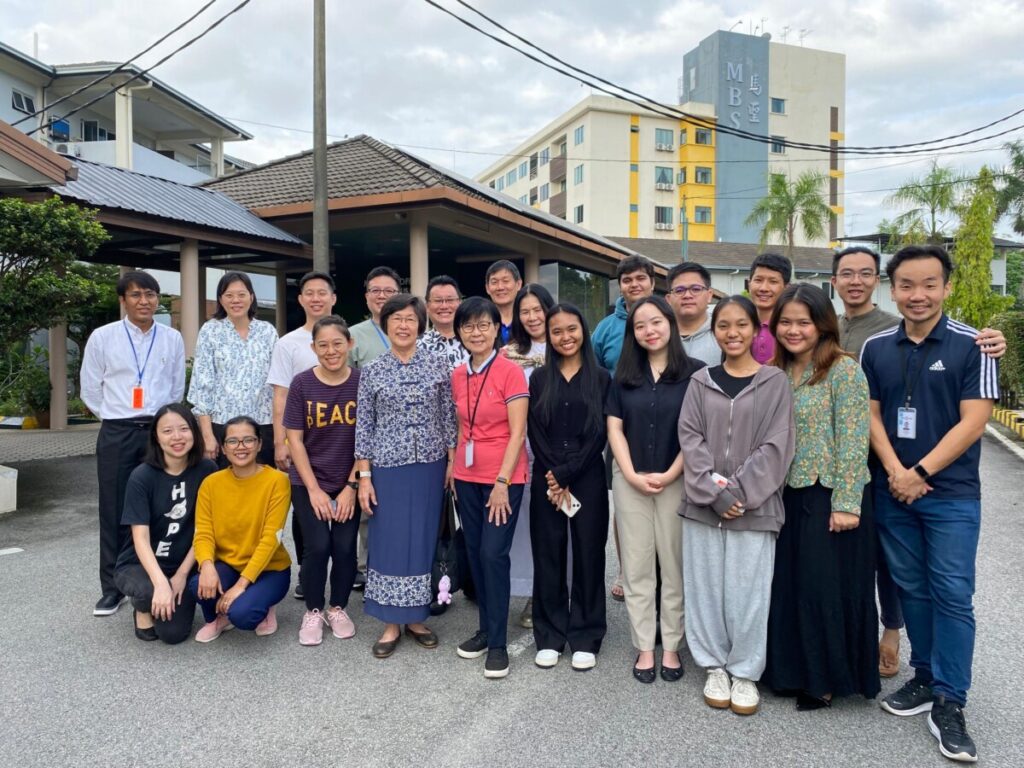
Lecturer: Dr Koh Siang Kiang
skoh@sbc.edu.sg
+65 97544171
Course Description
A practical study of the basis and practice of small group ministry, with emphasis on exercises that enhances those skills, including relationship building.
Course Objectives
At the end of the course, the students will be helped:
- To understand the biblical principles of small group dynamics and
interpersonal relationships; - To know how to organize, structure and administer a small group
ministry, paying attention to such details as recruiting, training,
supervising, leading, promoting, multiplying and evaluating small groups; - To evaluate the different models and types of small groups;
- To integrate theory and experience through hands-on exercises;
- To build up resources and materials for small groups;
Course Requirements
- Pre-class room – Reading Assignments:
Read one of the following books and write a three-page review paper on what the book teaches. Indicate 2-3 lessons that are most significant to you. 10%
a. Icenogle, Gareth Weldon. Biblical Foundations for Small Group Ministry: An Integrative Approach. Downers Grove : InterVarsity Pr., c1993. (396)
b. Cloud, Henry & Townsend, John. Making Small Groups Work: What Every Small Group Leader Needs to Know. Grand Rapids: Zondervan. 2003 (292) - Post-classroom – Reading Assignments: 20%
Read two of the three books on the bibliography (total 500 pages), which for every book read, write a two-page paper of 10 lessons learned. Enumerate the 10 points. - In class (MDiv only):
a. Each MDiv student will be given 15 mins to summarize the pre-class book read and share lessons learned. 5%
b. Prepare 5 questions (a handout) to ascertain the listener’s comprehension of the book. 5% - In class: Listening & Lessons Learned. 10%
a. With each reading presentation, fill in the listening sheet prepared by the presenter. - Pre-Classroom Assignment: Written/Oral Assignment—Small Groups Pastor Interview. 10%
i) Each student will interview one small group pastor of their choice in a local church setting. The pastor should be overseeing a structured small groups ministry in his or her church. The interview should discover the answers to the following questions:
a. How is the small groups program structured? How long has it been in place?
b. How are small group leaders selected?
c. How are small group leaders trained?
d. Who oversees the small group leaders?
e. What challenges do you face within your small group ministry?
f. What advice would you give related to leading a small group ministry?
g. What books or resources on small groups would you recommend?
h. Include any additional questions you (the interviewer) would like to ask
ii). The student will turn in a written summary covering the questions above in a 4-6 page double-spaced paper which should also include significant insights gained from the interview.
iii). The student will also prepare to give a 5-7 minute presentation to the class with a brief overview of the small group ministry they investigated. - Post classroom. 10%
iv). Ask for permission to sit in two sessions of the church you interviewed. Sit in the same group for the two sessions . Write a 6-8 page paper- summarizing your observation (1-2 pages);
- critique the observation based on principles discussed in class (1-2 pages);
- make specific recommendation/s for improving that group (1 – 2 pages).
- Evaluated Experience – Practicum. 20%
Students will be grouped in sevens to simulate a committee to plan and execute a four (4 hour) small group retreat on 16 March. The retreat must include elements discussed in class. On your own, before the simulation, you will determine the roles each will play. This is a class requirement and all members must be present and be active participants of the retreat. - Evaluation of Practice of leadership. 10%
Each student will submit an evaluation of the leadership (see criteria of evaluation) of the student/s leading and self.
Assignment Policy
Pre-class assignments: Submit by 6th March via email;
In class assignments: Submit hard copy in class;
Post course assignments: Submit by 25 April via email.
*All assignments are to be typewritten, using Times New Roman 12 point font.
Attendance Policy
Class attendance is required. Unexcused absences or lateness will be subject to the policies set by the school. It is to each student’s own benefit to be on time. It is to each student’s own benefit to attend faithfully and punctually.
Bibliography
Required Pre-classroom Reading
Cloud, Henry & Townsend, John. Making Small Groups Work: What Every Small Group Leader Needs to Know. Grand Rapids: Zondervan. 2003 (292)
Icenogle, Gareth Weldon. Biblical Foundations for Small Group Ministry: An Integrative Approach. Downers Grove : InterVarsity Pr., c1993. (396)
Required Post-classroom Reading
Cloud, Henry & Townsend, John. Making Small Groups Work: What Every Small Group Leader Needs to Know. Grand Rapids: Zondervan. 2003 (292)
Donahue, Bill and Russ, Robinson.. Building a Life-Changing Small Group Ministry: A Strategic Guide for Leading Group Life in Your Church. Grand Rapids, Michigan: Zondervan 2012. (240)
Icenogle, Gareth Weldon. Biblical Foundations for Small Group Ministry: An Integrative Approach. Downers Grove : InterVarsity Pr., c1993. (396)
Kunz, Marilyn. How to Start a Small Group Bible Study. 1985 (24)
Leth, Pamela C. Small Group Communications. Benjamin-Cummings Publishing. 1977. (123)
Peace, Richard, Small Group Evangelism. InterVarsity Press. 1985. (190)
Zempel, Heather. Community Is Messy: The Perils and Promise of Small Group Ministry. Downers Grove, IL: InterVarsity Press, 2012. (197)
